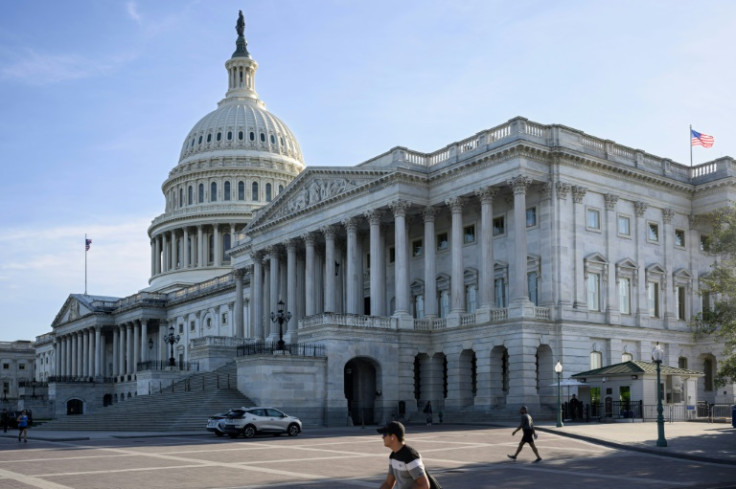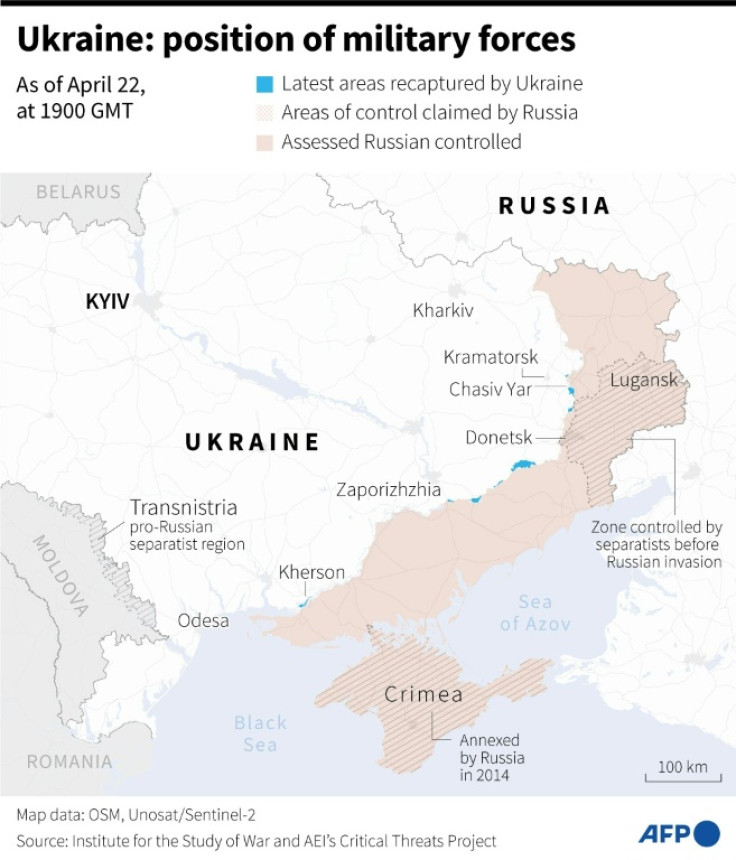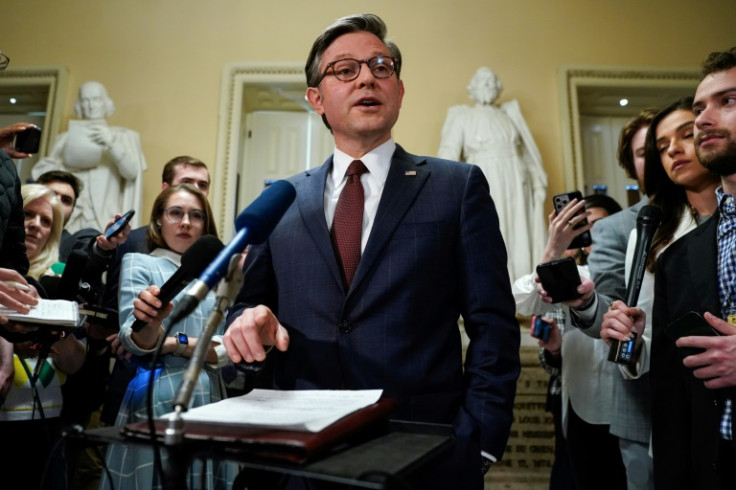
The US Senate approved a $61 billion aid package for Ukraine late Tuesday that had been stalled for months in Congress, with President Joe Biden vowing fresh supplies to be delivered swiftly to the warzone as Russia makes battlefield gains.
The package of legislation also contains text that would ban TikTok in the United States if the popular social media app does not soon cut ties with its Chinese parent company.
Days after the Republican-led House of Representatives cleared the aid, part of a massive $95 billion in assistance to allies including Israel and Taiwan -- the Democratic-controlled Senate followed suit, passing the broader package with bipartisan support on a 79-18 vote.
Passage of the bill, which also provides much-needed humanitarian assistance to Gaza, Sudan and Haiti, comes after months of acrimonious debate among lawmakers over how or even whether to help Ukraine defend itself.
The package now goes to Biden, who frames it as a vital bulwark against Russian aggression and has told Ukrainian President Volodymyr Zelensky he would sign it into law.
"Finally, finally, finally, tonight after more than six months of hard work, and many twists and turns in the road, America sends a message to the entire world: we will not turn our back on you," top Senate Democrat Chuck Schumer said ahead of the vote.
His Republican counterpart, Mitch McConnell, hailed the vote as "an extremely important day in the history of our country and of the free world."
The Ukraine measure also allows Biden to confiscate and sell Russian assets and provide the money to Kyiv to finance reconstruction, a move that has been embraced by other G7 nations.
The bills are the product of months of Capitol Hill wrangling, pressure from US allies and repeated pleas for assistance from Zelensky.
The United States has been the chief military backer of Ukraine in its war against Russia, but Congress had not approved large-scale funding for its ally for nearly a year and a half.
A largely similar aid package passed the Senate in February, but had been stalled in the House while Republican Speaker Mike Johnson -- heeding calls from Donald Trump and his hardline allies -- demanded concessions from Biden on immigration and other domestic issues, before a sudden recent reversal.
The financing of the war has become a point of contention ahead of a presidential election in November that is expected to pit Biden against Trump once again.
The bill also takes aim at TikTok. It would force the platform to divest from its Chinese parent company ByteDance or face a nationwide ban in the United States, where it has around 170 million users.
Western officials have voiced alarm over the popularity of TikTok with young people, alleging it is subservient to Beijing and a conduit to spread propaganda and gather personal data -- claims denied by the company.
TikTok and supporters have decried the prospective ban, warning it would trample free speech rights.
In addition to money for Ukraine, the package earmarks $13 billion for Israel, which is locked in a war with Hamas; more than $9 billion for humanitarian assistance in Gaza and elsewhere; and $8 billion in military support for Taiwan as it faces down China.
A Pentagon spokesperson told reporters Tuesday it could deliver fresh aid to Ukraine "within days."
Ukraine's military is facing a severe shortage of weapons and new recruits as Moscow exerts constant pressure from the east.
And frontline circumstances are expected to worsen in the coming weeks, with Ukrainian intelligence head Kyrylo Budanov predicting a "rather difficult situation" beginning mid-May.
The debate over Ukraine assistance has highlighted wide divisions between Democrats and Republicans in Congress -- but it has also revealed deep fissures within the conservative movement ahead of a likely Biden-Trump showdown in November.
While some hardline Republicans have been wary of sending funds overseas, Biden and the Democrats frame Ukraine aid as an investment in US security against Russian aggression.










